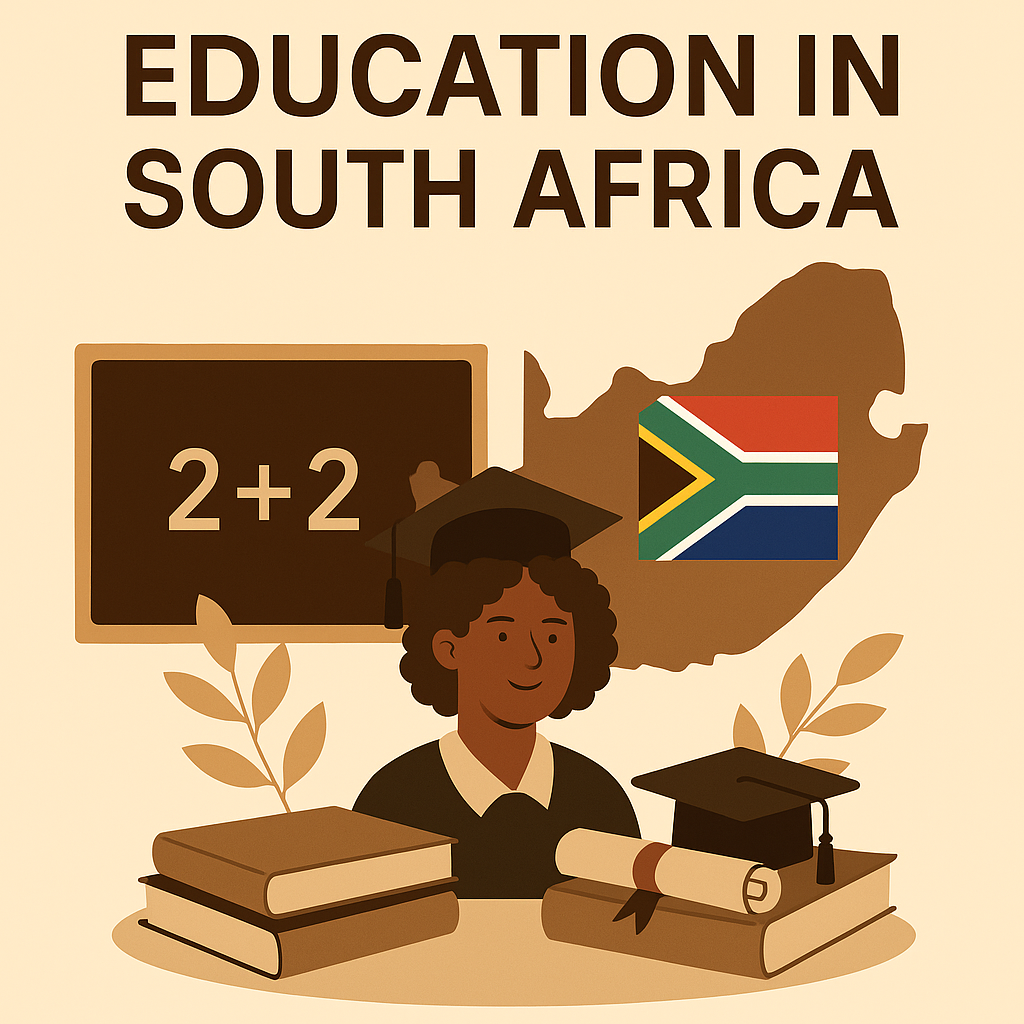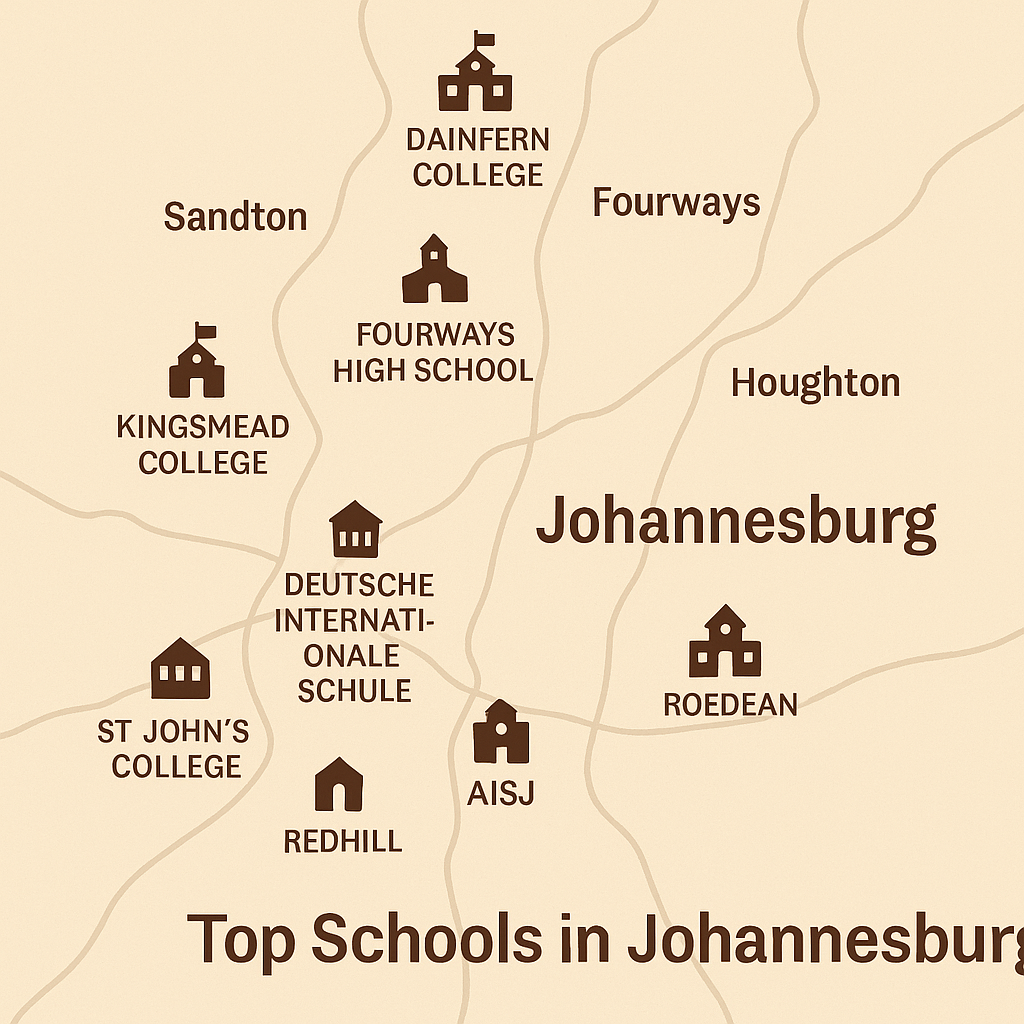Education in South Africa
Education is a central part of life for families relocating to South Africa, and the country offers a wide range of options to meet different needs. From public schools and historic local institutions to private and international schools following curricula such as Cambridge, IB, American, French, and German, parents have many choices depending on their priorities. The academic year typically runs from January to December, though some international schools follow a northern hemisphere calendar to align with global transitions. While quality and costs vary widely between provinces and school types, South Africa’s schools are known for their strong academic traditions, extracurricular opportunities, and increasingly global outlook—making it possible for families to find the right fit for their children’s education.
Education in Cape Town
Cape Town offers a diverse and quality education landscape, with options spanning public, private, and international schools. Many expatriate families choose Cape Town precisely because of the availability of internationally accredited schools, relatively smaller class sizes, and multiple curricula (e.g. IB, Cambridge, American) that ease transitions for students from other systems.
Education in Cape Town is organized under a few main approaches:
National & provincial curriculum schools — These are South African schools following the National Senior Certificate (NSC) system, sometimes via the public Western Cape system or via independent school boards (such as the Independent Examinations Board, IEB).
International / private schools — These often offer IB, Cambridge (IGCSE/A-Levels), American curricula, or foreign national curricula (French, German). Many accept a global student body and provide greater continuity for students moving between countries.
Academic Year & Calendars
The South African school year runs from January through December, divided into four terms, with the long summer break over December–January.
Some international schools in Cape Town (e.g. AISCT) use a northern hemisphere calendar (August to June) to better align with other systems abroad.
Because of this discrepancy, students moving mid-year (especially in secondary school) may face challenges syncing curricula or catching up.
Types of Schools & Notable Institutions
International & Private Schools
American International School of Cape Town (AISCT)
• Ages: 2 to 18 (Early Childhood through Grade 12)
• Curriculum: American (with Advanced Placement courses)
• Class size & ratio: Average class size ~16, student–teacher ratio ~10:1
• Accreditation: WASC (Western Association of Schools and Colleges) & recognized by Western Cape Education DepartmentInternational School of Cape Town (ISCT)
• Offers Cambridge curricula (IGCSE & A-Levels) for secondary students
• Focuses on balanced learning and preparing students for global university admissionGerman International School Cape Town (DSK)
• Bilingual (German + English) stream options; German stream grades 1–12, English stream from grades 5 onward
• Has a campus in Tamboerskloof and a satellite campus in ParowCape Town French School (Lycée Français du Cap / École française du Cap)
• French national curriculum with bilingual instruction in French and English
• Campuses in Gardens and Sea PointLocal / Traditional Schools
• Some of Cape Town’s most established schools (often single-sex or historically prestigious) include SACS (South African College School), Wynberg High Boys, Bishops Diocesan College, Herschel Girls, Sans Souci, St Cyprian’s, Rondebosch Boys, etc.
• These schools often have strong reputations in academics, sports, and extracurriculars. “Matric” (final year exams) can be under the NSC or IEB systems.Special & STEM-Focused Schools
• Cape Academy of Mathematics, Science and Technology (CAMST): Public boarding school in Tokai focusing on excellence in STEM education for grades 8–12.
Education in Johannesburg
Johannesburg offers a robust selection of schooling options—both local and international—catering to diverse curricula, learning styles, and global mobility. Many expat and local families look to Johannesburg’s northern suburbs (Sandton, Rosebank, Houghton, and Midrand) when choosing where to live, in part because of proximity to top schools and reputable neighborhoods.
Curricula & Accreditation
Schools in Johannesburg offer a variety of curricula: American high school diploma, International Baccalaureate (IB), Cambridge (IGCSE, A-Levels), French Baccalaureate, German Abitur, and the South African IEB (Independent Examinations Board).
The IEB is South Africa’s private board: students complete compulsory subjects (math, language, additional language, life orientation) plus electives. Strong performances can lead to admission at prestigious universities in South Africa and abroad.
School Year & Calendar Considerations
The standard academic year in Johannesburg runs January to December, with a summer break over December/January and shorter breaks mid-year.
A few schools have adopted a northern-hemisphere calendar (August–June) to align with international systems. Lycée Jules Verne and AISJ are two such schools, making them especially popular among globally mobile families.
Be aware that mid-year transfers can be tricky: students joining in the middle of a term may need to catch up or repeat portions of coursework.
Notable Schools & Locations
AISJ (American International School of Johannesburg) is one of the largest international schools in the area, offering both the IB diploma and American high school diploma for older students.
Lycée Jules Verne operates a bilingual French/English program with the French Baccalaureate, serving students from many nationalities.
Deutsche Internationale Schule Johannesburg provides a German-English bilingual track: one path leads to the Abitur (German school leaving certificate) or the South African IEB.
Local independent schools with strong reputations include St John’s College, Roedean, St Mary’s Waverley, Kingsmead College, and Redhill—many of which offer matriculation via IEB or IB.
For families living in Fourways or northern suburbs, Crawford International, Dainfern College, and Steyn City School offer co-educational IEB schooling.
Safety, Transport & Accessibility
School location is a critical factor. Because safety and traffic are major concerns, many families prefer schools within or near neighborhoods they already live in, or those with safe transport arrangements (school buses, car pools).
Many schools are willing to admit students with special educational needs (SEN), providing one-on-one support or adapted curricula. AISJ, in particular, has a well-established SEN department.
Pre-schools / preschool programs typically begin from ages 18 months to 4 years at international and independent schools. Johannesburg also has many local preschool programs run out of residential homes or community centers; always check registration and standards.
Choosing a School: What to Consider
Curriculum alignment & recognition
Choose a curriculum that aligns with your child’s future university path or transitions (IB, Cambridge, American, local matric).Calendar & term structure
Be mindful of the timing differences between local and international calendars, and how mid-year transfers can impact learning continuity.Load shedding / power disruptions
Many schools now invest in backup power systems (generators, inverters, solar) to reduce disruption caused by coordinated rolling blackouts (load shedding).Support for diverse learning needs
Schools may offer special education needs (SEN) accommodations, ELL (English Language Learners) programs, or one-on-one support (often at extra cost).Boarding & after-hours options
Some schools offer day-boarding or limited boarding options (especially in winelands or outside the city). Check weekend stay policies and extracurricular programming.



